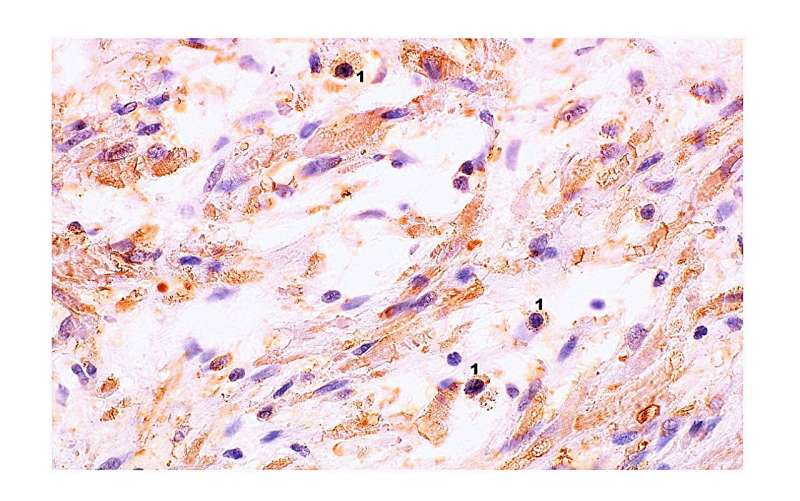This article has been reviewed according to Science X's editorial process and policies. Editors have highlighted the following attributes while ensuring the content's credibility:
fact-checked
proofread
A new connection between the gut microbiota and prostate inflammation in aging men

A new research paper titled "Tissue immunoexpression of IL-6 and IL-18 in aging men with BPH and MetS and their relationship with lipid parameters and gut microbiota-derived short chain fatty acids" has been published in Aging.
Recent studies indicate that inflammation is one of the causes of the development of benign prostatic hyperplasia (BPH). Inflammation may result from past infections, metabolic disorders, but also from the state of functioning of the intestinal microbiota.
In this new study, researchers Weronika Ratajczak, Maria Laszczyńska, Aleksandra Rył, Barbara Dołęgowska, Olimpia Sipak, Ewa Stachowska, Marcin Słojewski, and Anna Lubkowska from Poland's Pomeranian Medical University and State University of Applied Sciences aimed to assess whether the diagnostic lipid parameters for metabolic syndrome and short-chain fatty acids (SCFAs) are related to the immunoexpression of interleukins in prostate tissue with benign hyperplasia. The study involved 103 men with BPH, who were divided into two groups depending on the presence of MetS.
"We analyzed tissue immunoexpression of two proinflammatory interleukins: IL-6, which is known to be involved in the development of BPH, and IL-18, which has not been analyzed so far," the researchers write.
The results of their study indicated that men with BPH + MetS in the stroma of the prostate have a significantly higher overall percentage of IL-6+ cells compared to men without MetS (p = 0.034). The analysis of IL-18 immunoexpression in prostate tissue indicated that in men with BPH + MetS, the glandular part of the prostate had a significantly higher percentage of cells with strong IL-18 expression (p = 0.040). They also noticed a relationship between tissue expression of IL-6 and IL-18 and lipid parameters (TG and HDL).
"We conclude that lipid disorders occurring in men with BPH increase inflammation in the prostate gland. Moreover, it has also been demonstrated for the first time that indirectly, through SCFAs, the gut microbiota can act to prevent or create an inflammatory microenvironment in the prostate gland," the researchers add.
More information: Weronika Ratajczak et al, Tissue immunoexpression of IL-6 and IL-18 in aging men with BPH and MetS and their relationship with lipid parameters and gut microbiota—derived short chain fatty acids, Aging (2023). DOI: 10.18632/aging.205091




















